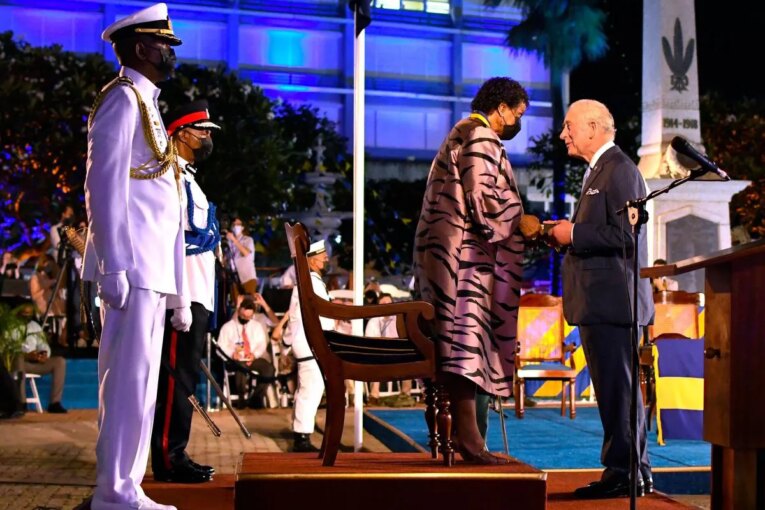
Queen Elizabeth II is being remembered in a myriad of ways after her death, and many of the memories are less than flattering.
Marginalized groups in particular have criticized the Queen’s participation within a colonial institution. But to what extent did Elizabeth II forward the colonial agenda, and how much did she try to right past wrongs?
It’s complicated, commentators from Indigenous and Black communities say. While the Queen’s mostly apolitical reign perhaps allowed her to distance herself from the institution’s colonial practices, several critics say it was a missed opportunity for the Queen to address the monarchy’s harms. And while it’s not clear what the future holds as King Charles III takes the throne, some community members aren’t holding their breath.
“The Queen has a long and complicated position as head of a colonial state,” said Crystal Gail Fraser, assistant professor of history and Native studies at the University of Alberta. “The Queen in her lifetime … was a part of policies that we now know as genocide.”
She pointed to Canada’s Indian Act, which set the stage for residential schools and criminalizing Indigenous cultural practices. In addition, the monarch served as partner to treaties the government signed with Indigenous communities, which Fraser said happened under inequitable circumstances. For instance, Indigenous communities in Edmonton were pressured to sign Treaty 6 at a time when they faced “extreme duress,” including starvation due to a diminishing buffalo population and widespread disease from settlers, Fraser said.
“In fact, many of those treaty promises have not been honoured in the first place,” she said.
Many people will remember and respect the Queen’s efforts to stay out of politics, said Angela Mashford-Pringle, assistant professor at the University of Toronto’s Dalla Lana School of Public Health.
But that approach was also harmful, said the associate director at the Waakebiness-Bryce Institute for Indigenous Health. For example, the Queen’s representative signed the treaties with Indigenous communities, but didn’t enforce them, Mashford-Pringle said. As well, the Canadian government, and recently the Pope, made public apologies for residential schools, but the monarchy hasn’t.
“The fact that she wouldn’t speak up on certain issues was like the silent ‘Yes, go ahead,’ because she was trying to be apolitical,” said Mashford-Pringle, who’s also
Fraser extended respect and sympathies to the Royal Family for the death of the Queen. Despite the monarch’s complicated legacy, Indigenous communities have traditions and laws that encourage forgiveness and hospitality, she noted.
“This does not mean that we’ve stopped advocating for our rights and our sovereignty.”
You can read more of the news on source



